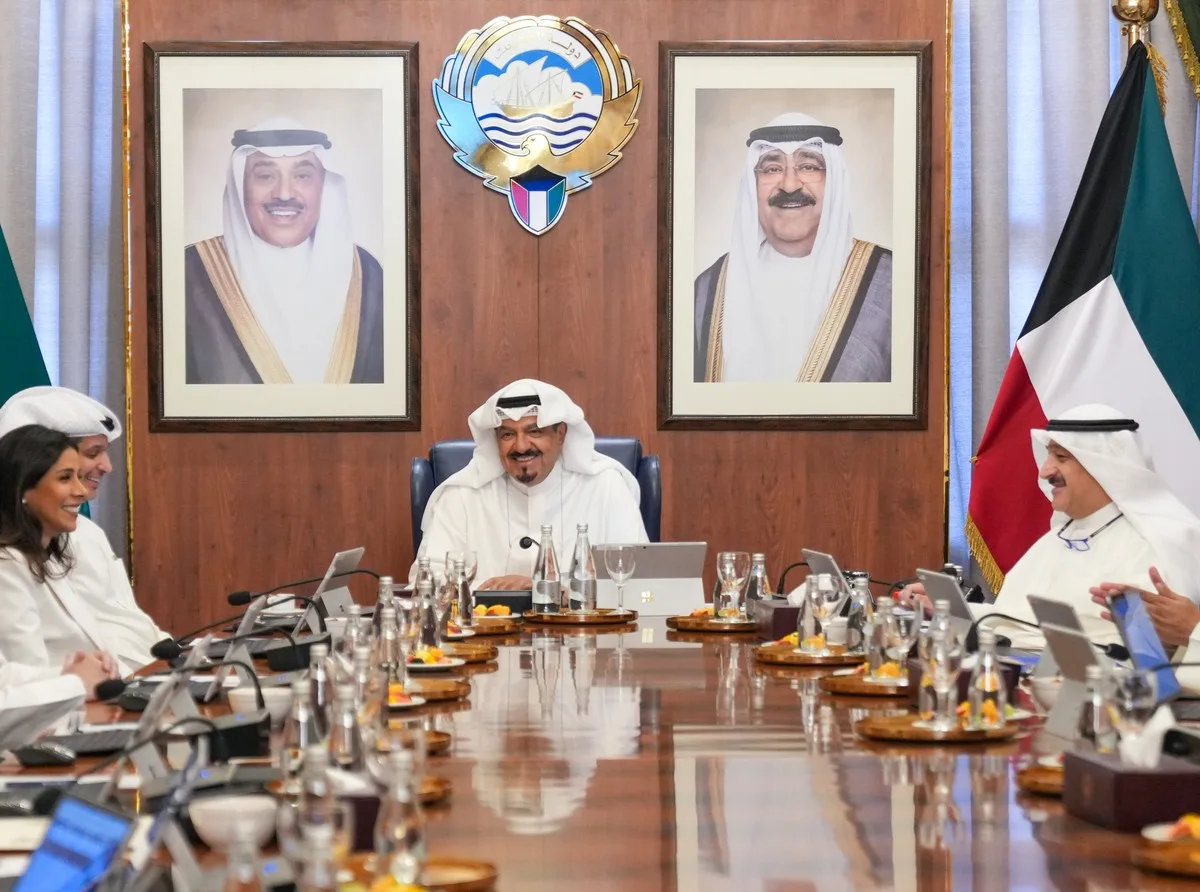08/10/2025
08/10/2025

KUWAIT CITY, Oct 8: In a decisive step toward bolstering Kuwait’s healthcare infrastructure, the Kuwaiti Council of Ministers has instructed the Ministry of Health, in cooperation with relevant government entities, to begin preparing the initial plans for Sabah Al-Ahmad Medical City and Al-Mutlaa Medical City, ensuring they align with international standards to deliver top-tier medical services.
The directive was issued during the Cabinet’s weekly session, held on Tuesday morning at Bayan Palace, chaired by His Highness the Prime Minister, Sheikh Ahmad Abdullah Al-Ahmad Al-Sabah.
According to Minister of Foreign Affairs and Acting Minister of State for Cabinet Affairs Abdullah Ali Al-Yahya, Minister of Health Dr. Ahmad Al-Awadhi presented a comprehensive visual briefing on the twin medical projects. These facilities are central to Kuwait Vision 2035, which aims to ensure equitable and accessible healthcare throughout all governorates.
The projects will establish two hospitals, each with a 500-bed capacity, and include dental clinics, outpatient centers, rehabilitation facilities, dialysis and transfusion units, staff residences, and medical warehouses. Sabah Al-Ahmad Medical City will serve areas such as Sabah Al-Ahmad, Wafra, and Khairan, while Al-Mutlaa Medical City will cover Al-Sabriya, Nawaf Al-Ahmad, and surrounding communities.
Dr. Al-Awadhi reaffirmed the Ministry’s commitment to enhancing the efficiency and quality of the healthcare system, while ensuring that the nation’s growing population has access to integrated medical services.
The Prime Minister also informed the Cabinet about high-level meetings held earlier in the week between His Highness the Amir, Sheikh Meshal Al-Ahmad Al-Jaber Al-Sabah, His Highness the Crown Prince, Sheikh Sabah Khaled Al-Hamad Al-Sabah, and David Solomon, CEO of Goldman Sachs.
The discussions emphasized Kuwait’s drive to expand its investment portfolio, boost entrepreneurship competitiveness, and foster strategic partnerships with leading international firms. These efforts aim to transfer global expertise, localize technology, attract high-quality investments, and empower youth within a sustainable development framework.
Furthermore, the Prime Minister briefed ministers on his meeting with Kristalina Georgieva, Managing Director of the IMF, where they discussed enhancing cooperation between Kuwait and the IMF. Topics included tackling economic imbalances, fiscal reform, effective financial policy management, and diversifying income sources.
Foreign Minister Al-Yahya also updated the Cabinet on the 29th GCC-EU joint ministerial meeting, hosted by Kuwait, with participation from GCC and EU foreign ministers, senior officials, GCC Secretary-General Jassim Mohammed Al-Budaiwi, and EU High Representative Kaja Kallas.
The final communiqué emphasized Iraq’s obligation to respect Kuwait’s sovereignty and international agreements—particularly UN Security Council Resolution 833. It also called for the completion of border demarcation beyond Marker 162 and the enforcement of the Khor Abdullah Agreement (2012). Attendees also welcomed UNSC Resolution 2792, which appointed a high-level envoy to follow up on missing persons and Kuwait’s National Archives.
The meeting reaffirmed the depth of GCC-EU cooperation in light of evolving global and regional dynamics. The Cabinet also highlighted Kuwait’s hosting of a high-level regional security forum last Sunday, which addressed issues such as maritime security, counterterrorism, cyber defense, and disarmament.
Minister of Education Sayed Jalal Abdul Mohsen Al-Tabtabaei briefed the Cabinet on a proposal to include the Shuwaikh Secondary School in the National Register of Historic Buildings. The request was made under Decree Law No. 11 of 1960 concerning antiquities.
The Cabinet expressed gratitude to the Ministry of Education and the National Council for Culture, Arts, and Letters for their efforts in preserving Kuwait’s cultural heritage and emphasized the importance of protecting historical buildings as reflections of national identity.
Sheikh Dr. Meshaal Jaber Al-Ahmad Al-Sabah, Director General of the Kuwait Direct Investment Promotion Authority, delivered a visual presentation of the periodic report by the Permanent Committee for Streamlining Business Environment and Enhancing Competitiveness.
The report focused on initiatives aimed at simplifying regulations, improving government coordination, and boosting Kuwait’s position in global performance indicators. The presentation also covered the upcoming “Tahseen” platform, which will track progress on implementing the National Agenda and development strategies.
The Cabinet approved two draft decree-laws:
- Amendments to the Criminal Procedures Law (No. 17 of 1960) – Introducing a digital penal order system that enables electronic processing of minor cases, reducing burdens on courts and expediting justice. The amendments also outline protocols for managing and disposing of confiscated materials not required for trial.
- Amendment to Law No. 5 of 1982 (Zakat House) – Adding a new clause to Article 4 to form a dedicated committee responsible for investing Zakat House’s financial and real estate portfolio. The committee will operate under Islamic Sharia principles and include representatives from the Public Investment Authority.
Both decrees were submitted to His Highness the Amir Sheikh Meshaal Al-Ahmad Al-Jaber Al-Sabah for ratification.
The Cabinet reviewed the Financial Controllers Authority’s reports for fiscal year 2024/2025 and decided to refer them to the Government Performance Follow-up Authority. The authority is tasked with coordinating with relevant institutions to implement the recommendations and report back within six months.
In a message of fraternity, the Cabinet extended congratulations to Egyptian President Abdel Fattah El-Sisi on the 52nd anniversary of the October 6th War victory. The ministers commemorated the bravery of Egypt’s armed forces and honored the shared sacrifices of Kuwaiti and Egyptian soldiers during the pivotal battle, reflecting the deep-rooted ties between the two nations.
Lastly, the Cabinet approved the minutes of the Supreme Committee for Citizenship Investigation, which included cases of nationality withdrawal and revocation in line with Law No. 15 of 1959.
The session concluded with a review of current Arab and international political developments, reaffirming Kuwait’s continued engagement in fostering regional stability and development.


